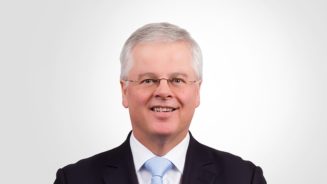Emerging markets performed well last year, thanks to broad economic stability in the major emerging economies, recovering commodity prices, low inflation and solid export volumes.
The improved conditions should remain in place for 2017, boding well for the year ahead, according to Gonzalo Pangaro, the lead fund manager of T Rowe Price’s Emerging Markets Equity Fund, a Luxembourg-domiciled Sicav.
Pangaro believes economic growth in the sector, relative to developed markets, is poised to reaccelerate, with some large EM economies, such as Russia and Brazil, enjoying a solid turnaround.
It is a view that is in line with the current IMF forecasts, which call for real growth across emerging markets in 2017 of around 4.6%, compared with 1.8% for developed market economies.
“Emerging economies on the whole are looking less vulnerable than they did during the times of ‘taper tantrum’ concerns, with the aggregate emerging market current account now showing a positive balance,” Pangaro says.
He adds that levels of foreign exchange reserves versus external debt were also fairly healthy. As were real interest rates, reflecting the more disciplined monetary policy of EM central banks, giving room for them to offset the pressures of rising US rates.
“Those countries that push ahead with reforms should do well, while countries that do not will struggle,” he predicts.
Corporate earnings were another positive factor, he notes, pointing out that 2016 was the first time in more than five years when estimates had to be revised higher.
“Estimates for earnings growth in 2017 are around 12%. This will be a ‘prove it’ year for EM,” he says. “Overall, the environment will remain complex but this should provide a good opportunity for active investors to take advantage of valuation anomalies.”
Designated driver
Pangaro believes a key factor behind emerging market performances this year will be the consumer, who should drive strong growth in a variety of industries and companies, including retail, banking, technology and the internet.
“With investors sceptical, valuations attractive and fundamentals bottoming, the environment appears positive for emerging market equities and ripe for stockpicking.”
In general, he feels valuations continue to be attractive because they are at a wide discount relative to developed markets, particularly on a price/book basis.
“Valuations have not reflected the upturn that has started in margins and return on equity. Earnings growth, however, has been somewhat anaemic and may well be poised to accelerate in 2017, making us more sanguine about current valuation levels.”
Pangaro, who started his career at T Rowe Price in 1998 as an analyst covering Latin American equities from Buenos Aires, favours this region for 2017.
“Latin America is currently our largest regional overweight, driven by our positive view on Brazil,” he says. “Following the strong market rally last year, future performance will likely be more dependent on continued political reforms and on improvements in company earnings.
“We believe there is still scope for financials, consumer discretionary and real estate stocks to perform well, and we have selective exposure to these areas of the Brazilian market.”
Pangaro’s Emerging Markets Equity Fund has significant holdings in financial companies such as Itaú Unibanco and Banco Bradesco. It is also overweight Raia Drogasil, a drug store operator, and Lojas Renner, an apparel retailer in Brazil.




